With winter fast approaching, it’s never too early to start winterizing your lawn’s irrigation system this fall. But where do you start, and what does the process entail? Read on for all that information and more so that your irrigation system is ready for even the coldest winter.
What Is Irrigation Winterization?
Winterization is the process of preparing something for winter weather. While it sounds pretty straightforward, you must consider all the potential problems winter brings. Irrigation winterization is a multi-step process that requires a good deal of know-how and forethought. While the winter air is often drier, winters in Nashville are usually very wet. This extra precipitation can bog down irrigation systems that aren’t shut off or otherwise properly winterized, leading to flooded lawns and soil erosion. Flooded lawns can lose nutrients that your grass and plants will need in the spring, resulting in fungal blooms, mold, and less than adequate growth.
The Benefits of Winterization
The biggest reason to winterize your irrigation system is to ensure its longevity. Even here in Nashville, winter can get pretty cold. That cold weather can wreak havoc on an irrigation system that isn’t properly winterized. In the winter, even water underground can freeze. When it freezes, it expands, potentially cracking pipes and sprinklers alike in your irrigation system. These repairs are costly. Rather than risking damage, having a qualified landscaper inspect your system and winterize it will guarantee that this kind of damage doesn’t happen. A properly winterized system can last a lot longer than a system that’s left to chance each winter. Your lawn relies on proper irrigation in the dry spring and summer months, and without it, it suffers. Without a green lawn, your landscaping is going to suffer. Landscapers at The Parke Company can help make sure your irrigation system is in peak condition all year. Get peace of mind by contracting with us for a year-round irrigation maintenance plan that includes winterization, inspection and testing, repairs, and spring startup. There’s no reason to have to worry when the first frost warning comes through this winter if your system is winterized. Being prepared is critical for your lawn to thrive, and we can help.
Now that you know what winterization is and what it can do for your property, let’s explore the steps the process includes.
How to Winterize Your Irrigation System
The first major step in winterizing irrigation systems is to shut them down. Leaving a system running can result in floods or other issues that you might not notice immediately. Turning off the electrical pumping system and water supply are your primary goals in this step. The electrical components of irrigation systems can be nuanced, with older systems being on simple switches and some modern systems having more complex procedures for shutdown. Every irrigation system is a bit different, and each home’s uniqueness complicates that. Some water shut-offs are housed inside a home, while others are in an outdoor location like a shed or the exterior of the home. An irrigation system has two different water-controlling valves, and both should be shut off in a specific order. The first is called the backflow device. This valve prevents water in the irrigation pipes from flowing back into your home’s pipes in the event of an issue. This is highly important and prevents dirt and other contaminants from entering the home. Shutting this off prevents the flow of water in either direction, so you can safely flush the system out later. Next, you’ll shut off the main water supply to the irrigation system. This is usually indoors and is a valve or lever on the pipe leading to the system. Turning this off prevents more water from flowing into the pipes.
The next step is the most important. Draining your irrigation system ensures that no water remains in the pipes. This step is best left to the experts. A qualified irrigation system technician can properly and safely perform each of the steps outlined above and complete an inspection of your entire system. This ensures that your irrigation is fully winterized and ready for its long dormancy this winter. Looking for irrigation winterization near you? Leave it to the experts at The Parke Company. There are many reasons to let the professionals handle your irrigation system, but one of the best reasons is cost. It’s not an expensive task to have a contractor inspect and winterize your irrigation system, but it can be costly to neglect it or do it incorrectly. Repairs cost a lot more, and improperly handling your system can result in less than stellar growth come spring, as well as complete failure in the dry months.
The Parke Company has been installing and servicing irrigation systems for decades, and we’re ready to assist you with winterizing yours. Ready to learn more about the winterization process and how we can help? Give us a call today!
